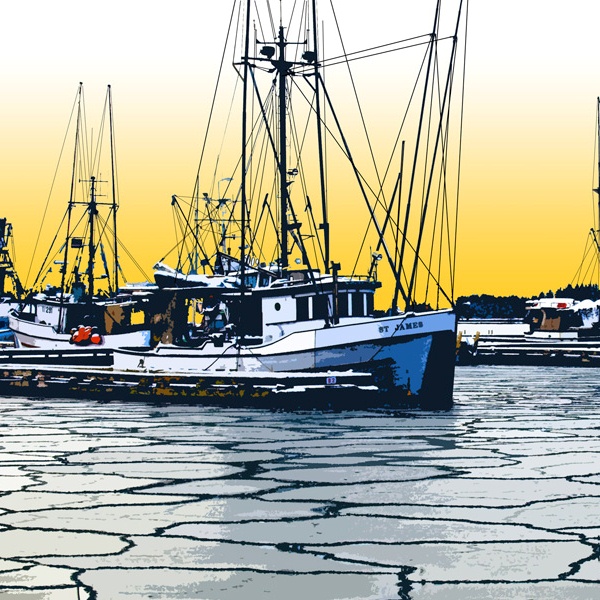The Arctic is melting and the fish are moving in

By Rod Fujita
In 2012, ice cover in the Arctic Ocean reached the lowest level ever recorded by satellites over the last 30 years, according to NASA. As a result, the Arctic Ocean has expanded much more rapidly than climate models had projected. (In the image below, the yellow line shows the average minimum extent of the ice over the past 30 years, compared to 2012.)
The warming waters and expanding ocean seems to be attracting some species of fish, and of course less ice means more opportunity for fishing.
In the past, when new patches of fish were discovered, they have been rapidly exploited, and sometimes overexploited. But in one of the most progressive fishery management moves ever, the North Pacific Fishery Management Council imposed a moratorium on commercial fishing in a 200,000 square mile zone within the expanding Arctic until sufficient information is available to develop a sound scientific basis for harvest.
A new study suggests that the Arctic will become less productive for several reasons.
- The newly ice-free waters are too deep for some commercially important species like arctic cod.
- Ocean acidification from carbon dioxide pollution will reduce the productivity of copepods, mollusks, and other shellmaking creatures, reducing the food supply for fishes we like to eat.
- Warming temperatures might increase the already intense stratification of the Arctic, where warmer water float on a layer of colder, denser, nutrient-rich water. This may prevent nutrients from the sea floor from reaching the surface and being ingested by plankton, at the base of the food chain.
These are all reasonable concerns, but there may be mitigating factors that could increase the productivity of the Arctic in a warmer world.
For example, deep water will be an obstacle to some species, but not necessarily to all, including some very important commercial species that live mid-way in the water column. Acidification will most likely harm some species in the Arctic food web, but they could be replaced by other species less affected by acidification.
The bottom line is that nobody can be too sure of what will happen to fish in the Arctic and Arctic Ocean productivity, but we can be pretty sure that if commercially important stocks do move into the expanded waters there, fishing fleets will follow.
The moratorium on commercial fishing imposed by the NPFMC is the right policy response to large scientific uncertainty. Hopefully, other nations will follow suit and adopt similar precautionary measures to prevent a rapid increase in fishing pressure before science can catch up.










